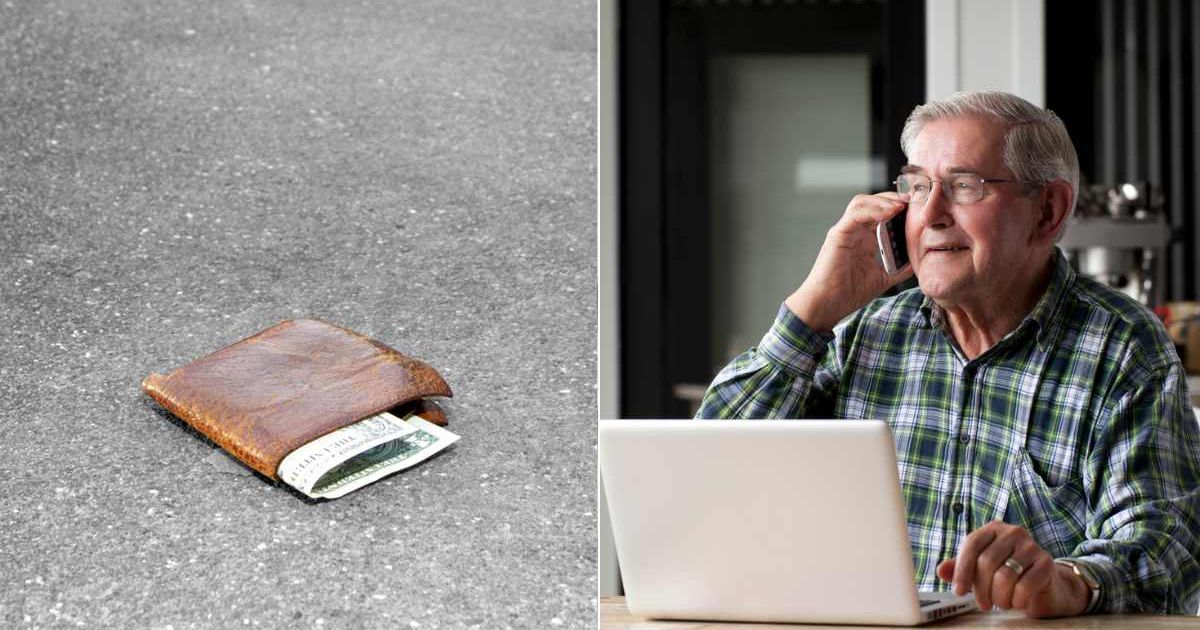Navy meteorologist lost his wallet in Antarctica—53 years later, a phone call revealed an unbelievable twist

There are quite a few things people lose and forget about, with no hope of getting them back ever. Now, if one were to lose a wallet in the cold, white expanse of Antarctica, they are likely to forget about it, reluctantly or easily. A retired Navy meteorologist, Paul Grisham, experienced just that while he was stationed there in 1968. However, he didn't know that he would find his wallet after 53 years, without even looking for it. The best part, the unexpected recovery, also brought along some cherished memories with it, per CNN.

Grisham was surprised to get his wallet back as he didn't remember it at all after over five decades. It was found as someone was demolishing a few old buildings, including the one the man lived in during his year in Antarctica, at McMurdo Station. It was found behind the lockers in 2014, per The Guardian. The 91-year-old was nonetheless glad to have things that represented his 13-month stint in the region. Grisham enlisted in the Navy in 1948 and became a weather technician and forecaster before he was sent to Antarctica in 1967 as a part of Operation Deep Freeze. Although the wallet carried the man's old identity card, it wasn't the easiest thing to return.

Several emails, messages and letters were exchanged before the wallet was returned to Grisham. Two wallets were sent to Stephen Decato, who worked with the Indiana Spirit of '45 nonprofit foundation. His daughter, Sarah Lindbergh, found the retired Navy meteorologist's information through the Naval Weather Service Association and returned the wallet. Grisham had retired from the Navy back in 1977 and recounted several incidents after he went through his wallet. "It brought back memories, oh yeah. I had dark brown hair at the time," the man told CNN after looking at his old ID. The wallet also had his beer ration card, motor vehicle operator’s license and instructions on what to do in case of nuclear, chemical, or biological attack as he was working there during the Cold War.

"Thank god it was never used," Grisham commented about the attack instructions. He recounted how the summer operations in Antarctica were his busiest time. "The entire station worked 12 (hours) on 12 off around the clock for a period of five months because there was so much to do." The station had to be prepared before the dark months of winter began in the region. "McMurdo Station was in what we called the 'banana belt,' the temperature got up to about 25 degrees and I’ve seen it as cold as minus 65." He added, "It's almost inconceivable just how cold it is. It’s almost impossible to describe to people who haven’t been there. In fact, we spent a lot of time trying to figure out 'how do we explain this to the folks at home?' and we just never really came up with a good way to explain it."
"The one thing that really made life worth living down there was the people who were there. We wintered 180 men and they were the most congenial, likable men that I ever had the pleasure to be around." The men played a lot of games, including poker and Grisham would send the money he won back home to his wife, Wilma. He also had those money orders in the wallet. The man went to the South Pole, which was 850 miles away and also met Sir Edmund Hillary in that span. His 26-year-old granddaughter, Christina Salazar, who loved to hear her grandpa's stories from when he was on "the ice," was also amazed to look at the wallet and the near-perfect condition it was found in.
